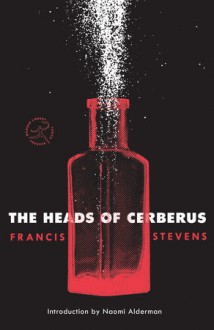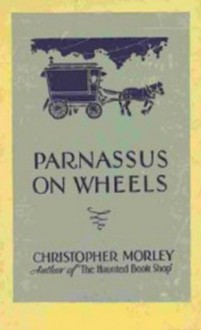
Originally serialized in 1919, 'The Heads of Cerberus' is an early novel of a dystopian future. For sale at a Philadelphia estate auction is a strange artifact. A Renaissance crafted rock crystal vial with the titular silver heads containing dust rumored to have been collected from the gates of purgatory....
Robert Drayton is a lawyer down on his luck after being framed by unscrupulous businessmen, but an accident brings him back n contact with a formerly close friend, Terrence Trenmore. Trenmore collects curiosities and his purchase of the vial at an estate auction has drawn threatening letters from a mysterious collector and even an attempted break in.
Knowing there must be something more to attract this attention then mere dust the men investigate and accidentally breathe in the substance, unwittingly so does Trenmore's sister Viola. The three are transported to a mysterious land and when they are returned to Philadelphia they find it drastically altered.
The streets, buildings, and fashions of 2118 are strangely unchanged, but the mass of society are known only by their number, is cut off from its regions, ignorant of history and subject to the rule of Penn Service. In the former city hall, now a temple to 'Lord Penn', are the Servants of Penn named for virtues, and the Superlatives, named for the areas of government for which they are responsible.
The stranded refugees of the 20th century must face death or compete in the Civil Service Examinations. Forces in the city appeal to them to compete for the titles of Strongest, Loveliest, or Cleverest, but do they want to be a part of this society?
This was a lot of fun to read. Reprinted as a part of Modern Library's Torchbearers series, it novel about a dark, authoritarian future by a female author I'd never heard of before (and there's more, but I won't tell). In some ways its an artifact, but there were elements of this that elevate it above a historic milestone on the way to better things. In tone its more of a forebear to Philip K. Dick than the back-cover referenced 'The Hunger Games'. I especially loved the description of the transformation of Philadelphia's City Hall . Very cool, I'll be checking out other titles.

 Log in with Facebook
Log in with Facebook 








